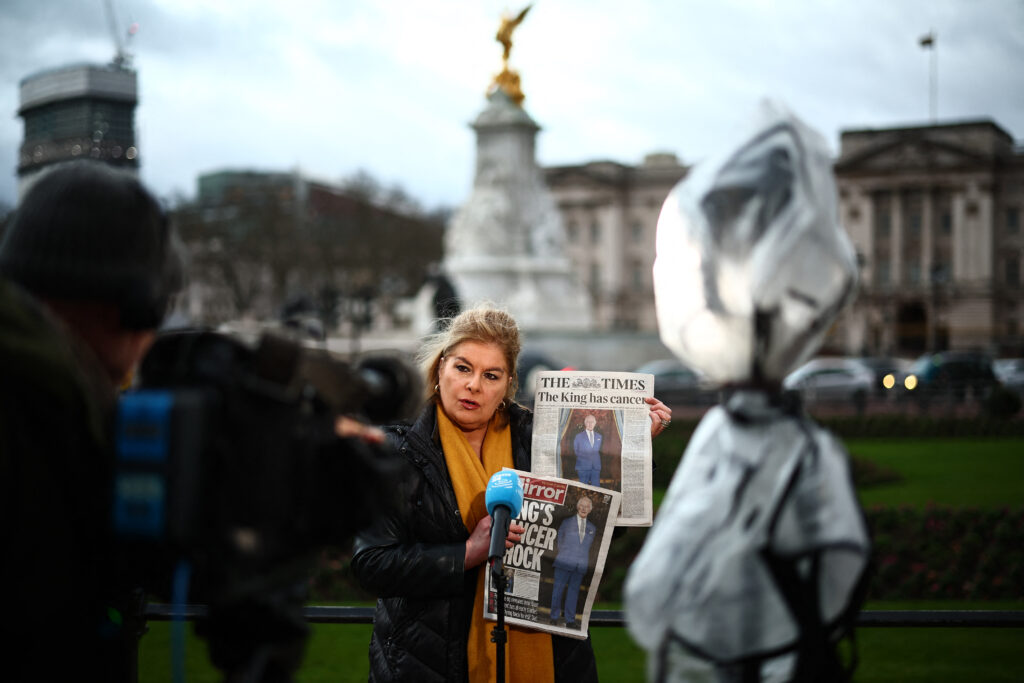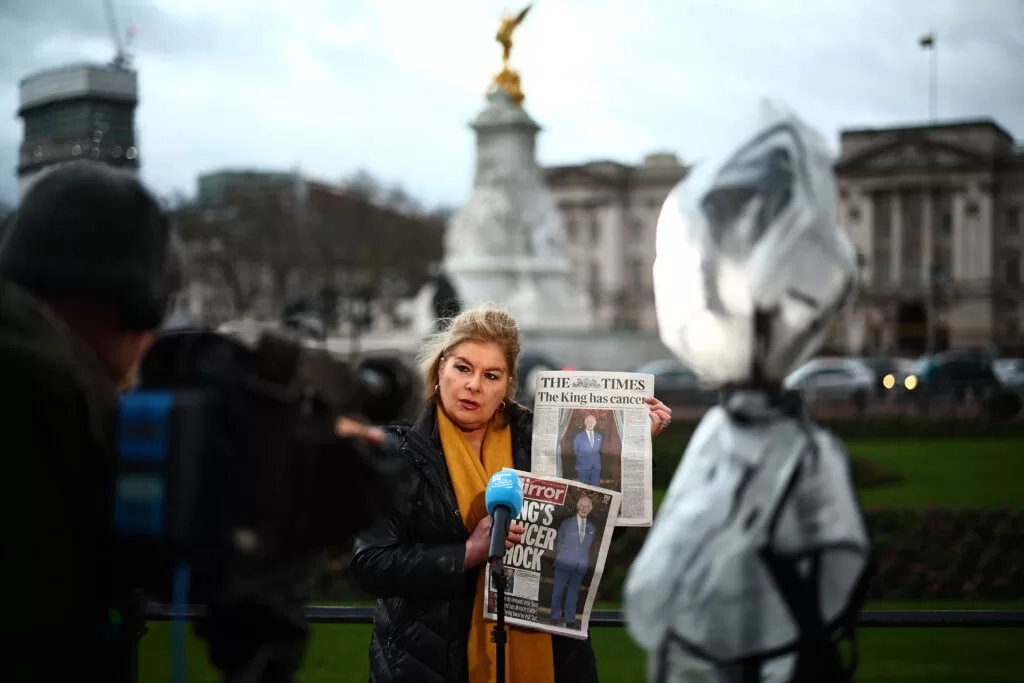While most of the media did not quibble with the palace’s decision not to be more forthcoming about the exact nature of Charles’ affliction, the Times sounded a warning note, saying: “This strategy … runs the risk of leaving many people to assume that the king’s condition is more sinister than the palace is letting on. Or, worse, that in releasing some information but not all information, they are hiding something.”
Charles, who has indicated a desire to preside over a more modern monarchy, hired a former deputy editor of the middle market tabloid Daily Mail, Tobyn Andreae, as his comms chief in September 2022 — the month his mother Elizabeth died. Some saw this as a sign that a more open relationship would be sought under the new regime.
“It’s a departure from what used to be,” said Dickie Arbiter, a former royal press spokesperson to Elizabeth II. “When the late queen was still alive, engagements were canceled on the basis that she had ‘mobility issues.’ We weren’t told what the mobility issues were,” he recalled.

Michael Cole, a BBC royal correspondent in the 1980s, said the new approach marks an even starker contrast from the earlier part of Elizabeth’s reign, when the palace saw itself as the “keeper of the information.”
He recalled how Richard Colville, press secretary to the queen until 1968, frequently had “no comment, or less than no comment,” to the press. “He was just a solid wall that batted back any question that came” Cole recalled.
Careful wording
Despite the apparent openness, the king’s current comms chiefs are still keen to keep tight control of their messaging via carefully-worded statements. Monday’s announcement was clear that while the king’s public-facing duties would be postponed, he would continue with behind the scenes state business and official paperwork.
